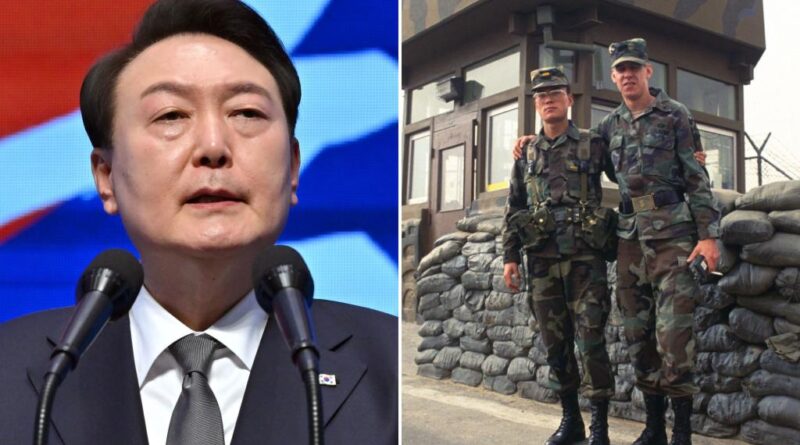Seoul’s Constitutional Crisis Disrupts East Asia’s Security Landscape

The recent abuse of authority by South Korean President Yoon Suk Yeol, who declared martial law earlier this month, has pushed his country into a constitutional crisis, significantly affecting US strategic interests in Asia as Donald Trump makes his return to the White House.
Although Yoon quickly rescinded the martial law declaration, the gravity of such an action calls into question the maturity of South Korea as a first-tier democracy, tarnishing its image as a stable partner in the region.
Yoon justified his martial law order by labeling his political opponents as “anti-state forces.” However, this move seemed less a response to a dire emergency and more an expression of frustration towards a legislative opposition party that holds a majority.
This event has evoked memories of South Korea’s authoritarian past, raising concerns about the potential for repetition. There are growing doubts surrounding the stability of the South Korean government, leading to a decline in the national currency amidst political chaos. Additionally, there are fears that North Korea may attempt to take advantage of this instability to escalate military actions against its southern neighbor.
On Saturday, Yoon was impeached by South Korea’s parliament, which ended a period of severe political paralysis but ignited an intense discussion regarding his future.
With the suspension of Yoon’s presidential powers, Prime Minister Han Duck-soo assumed control later that day.
Yoon’s entire cabinet resigned in protest against his martial law decision, and his defense minister, Kim Yong-hyun, was arrested on treason charges. Yoon is now facing his own treason investigation, which is not covered by presidential immunity. Public opinion polls indicate that 73% of South Koreans support his impeachment, with Yoon’s approval rating plummeting to a mere 13%.
South Korea currently finds itself in a state of political disorder. There is uncertainty about who oversees the military and is accountable for addressing potential provocations from North Korea or other crises. Essentially, who is ensuring the safety of the Korean Peninsula?
In 2016, President Park Geun-hye was ousted over far less serious corruption allegations following months of large-scale protests. Yoon has now caused irreparable harm to his capability to execute vital foreign and security policies. These include strengthening the South Korea-U.S. alliance, enforcing deterrent strategies against North Korea and China, enhancing security collaborations with Japan, and bolstering South Korea’s security and economic stature within the Indo-Pacific region.
As South Korea grapples with ongoing turbulence and inefficiency, questions arise about its future. The progressive opposition party is likely to win a special election to succeed President Yoon. However, this party may clash with the U.S. over its reluctance to take on a more significant role against the growing Chinese threat. They could also oppose the U.S. stance on North Korea, advocating for reduced sanctions against Pyongyang in hopes of moderating its increasingly hostile actions.
South Korean political figures, including Lee Jae-myung of the Democratic Party, have raised concerns about the implications of China’s aggressive posture towards Taiwan on South Korean security. In July 2024, opposition parties declared intentions to put forth legislation preventing South Korean military involvement in any Taiwan crisis. Meanwhile, Washington urges Seoul to support any U.S. efforts to defend Taipei.
The upcoming Trump administration will seek ways to address the dual threats from China and North Korea in the region. The White House will be looking for allies who are not only strong but also reliable, and it will assess their contributions accordingly. Both South Korea and Japan had previously been viewed as steadfast allies.
However, Japan’s Prime Minister Shigeru Ishiba leads a minority government, struggling to make legislative progress without concessions to opposition parties. With South Korea faltering, concerns have emerged over Japan’s capacity to fulfill its promises of doubling defense spending, developing counter-strike capabilities against North Korea’s nuclear and missile threats, and addressing China’s aggressions towards Taiwan.
The ramifications of President Yoon’s unconstitutional actions leave the United States aligned with two faltering nations just as Washington charts its course in the Indo-Pacific. As President Trump plans his initial strategies, prospects for success appear dimmer than they did just a few months ago.
Bruce Klingner is a senior research fellow for Northeast Asia at the Asian Studies Center at The Heritage Foundation. He served for 20 years with the Central Intelligence Agency and Defense Intelligence Agency, including as CIA’s deputy division chief for Korea.



